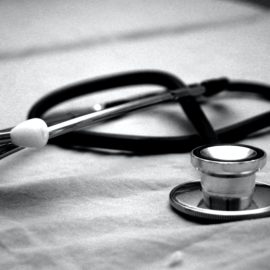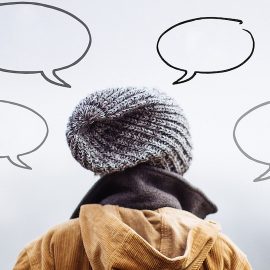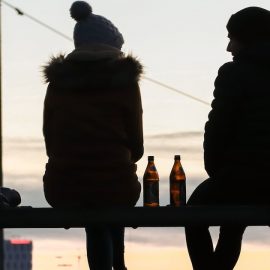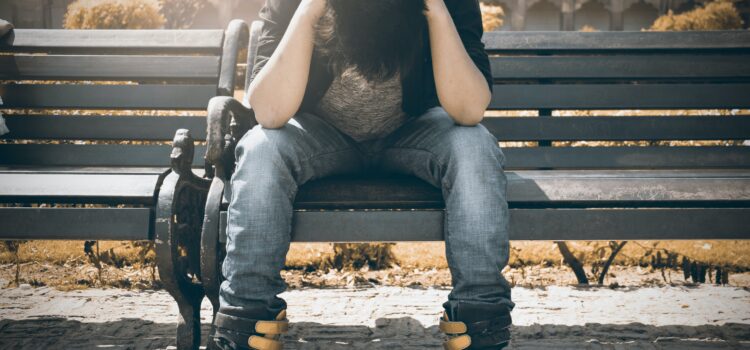
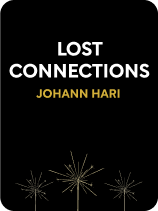
This article is an excerpt from the Shortform book guide to "Lost Connections" by Johann Hari. Shortform has the world's best summaries and analyses of books you should be reading.
Like this article? Sign up for a free trial here .
Is the chemical imbalance theory of depression true? How does the book Lost Connections challenge the theory?
Research shows that there is no evidence that having too much or too little of certain brain chemicals can solely lead to depression. The book Lost Connections challenges the chemical imbalance theory by exploring the biopsychosocial model which posits that psychological, social, and biological factors are the main causes of depression.
Read more about why the chemical imbalance theory is flawed.
The Holes in the Chemical Imbalance Theory
When Lost Connections author Johann Hari first started taking antidepressants, his doctor explained depression using the chemical imbalance theory just like the rest of the medical community at the time: Depression is a brain disease caused by low levels of a chemical called serotonin in the brain, and antidepressants treat depression by increasing the level of serotonin in the brain. Millions of people have heard the chemical imbalance theory from doctors when they sought medical treatment for depression—in 2014, one out of every five adults in the United States was taking some form of psychiatric medication.
But the sheer number of people taking medications for mental health hints at a deeper issue: If depression is a purely biological illness caused by a random malfunction in the brain, how is it that so many people’s brains are going biologically haywire at the same time? As it turns out, depression is not just about your biology. Brain chemicals (called neurotransmitters) and genetics do play a role, but even if you’re genetically predisposed to depression, your genes alone won’t make you depressed—something in the environment outside the brain has to go wrong to trigger them.
Today, most scientists talk about depression and other mental illnesses using the arguably more accurate biopsychosocial model, or the idea that mental illness is caused by a combination of three factors: biology (“bio”), psychological history (“psycho”), and social environment (“social”). In other words, biology is only part of the problem—which means a drug that treats biological factors can only be part of the solution.
This isn’t to say that Hari is against antidepressants in general (nor are most of the doctors and scientists he interviewed). As we’ll see, antidepressants do have some effect on symptoms of depression and anxiety: but it’s a small effect, on a small percentage of people, that lasts for a short time.
The History of the Medical Model: Depression as a “Chemical Imbalance”
The “medical model” of mental illness is the idea that a serotonin imbalance in the brain causes symptoms of depression and anxiety, with no influence from the outside environment. Serotonin is one of several chemicals in the brain called neurotransmitters, which are chemical messengers that relay information from one cell to another. In the medical model, serotonin is the chemical that makes us feel happy, and people get depressed when their brains don’t produce enough serotonin on their own. Through this lens, depression is a medical disease that pops up randomly, much like cancer.
The chemical imbalance theory is a relief for many depressed people who are often accused of being lazy or just not trying hard enough to be happy or even to function. The model gives these people a biological process to point to: Depression comes from a chemical imbalance in the brain, not a lack of willpower or a choice to be lazy, so it’s not their fault. However, that story is only half-true: Depression isn’t about willpower or laziness (and is certainly not a choice), but the debilitating effects of depression are not the result of a simple “chemical imbalance.”
The false idea that low serotonin levels in the brain cause depression symptoms originated in a tuberculosis ward in 1952 with an experimental new drug containing serotonin. The treatment was a flop in terms of treating tuberculosis, but it induced a state of euphoria in the patients that left them dancing in their rooms. There could be any number of explanations for that unexpected effect, but the technology required to test them didn’t exist yet, so all scientists could do was speculate that serotonin was responsible for the mood-lifting effects—and that’s exactly how “the serotonin story” started.
When scientists proposed that the failed tuberculosis drug was creating a sense of euphoria in patients by raising their serotonin levels, and that, therefore, low serotonin levels must lead to depression, it was a hypothesis based on pure guesswork. If raising serotonin levels increased patients’ happiness, then maybe low serotonin levels were causing their depression. At the time, there was no evidence to support (or refute) that theory, but it persisted.

———End of Preview———
Like what you just read? Read the rest of the world's best book summary and analysis of Johann Hari's "Lost Connections" at Shortform .
Here's what you'll find in our full Lost Connections summary :
- The psychological and social factors that contribute to mental illness
- The history of antidepressants and the science behind them
- Why Amish people hardly ever get depressed

